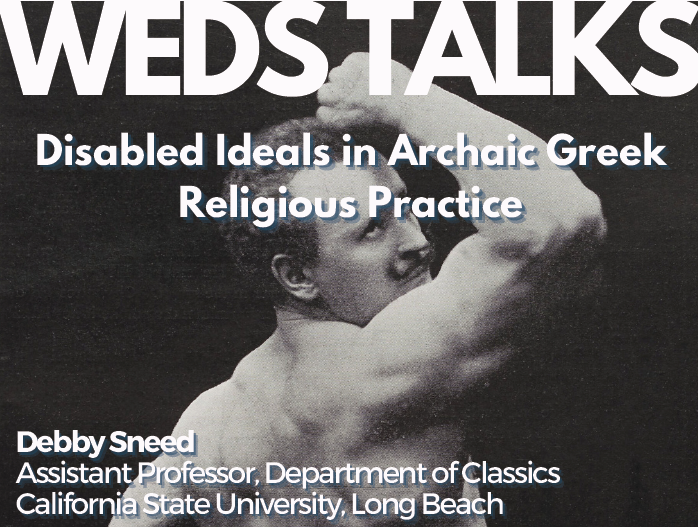Event: WEDS TALKS: Disabled Ideals in Archaic Greek Religious Practice
Event Details

ABSTRACT: Religious practice on the Athenian Acropolis in the Archaic period is perhaps best known through the dedications that were buried on the summit after the site was sacked by the Persians in the early 5th century BCE. These dedications include marble statues of young maidens—called korai—as well as inscribed statue bases that record the names of dedicators and, sometimes, their motivations. In this paper, Debby Sneed presents the results of her co-authored study on one religious dedication and discusses what it means for our understanding of religious devotion and disability in Archaic Athens.
BIO: Debby is a UCLA alumna; she graduated with her PhD in Archaeology in 2018. Currently she is an assistant professor of Classics at California State University, Long Beach. She also serves as the Field Supervisor of the Athenian Agora excavations and summer program for the American School of Classical Studies at Athens. Her research primarily focuses on disability in ancient Greece. She has published three articles so far on the topic, including one on disability and infanticide in ancient Greece, another on ramps as accessibility features in ancient Greek healing sanctuaries, and one entitled Ancient Greek and Roman Crip Lit. She has an article forthcoming that is co-authored with Mason Shrader, a graduate student at the Joukowsky Institute for Archaeology in the Ancient World, which argues for the ethics of accessibility on archaeological excavations. In today's talk, she will present an article co-authored with Erin Lawrence-Roseman, a graduate student at Berkeley, that will be published in Art Bulletin later this year, focused on disability and ancient Greek sculpture.


